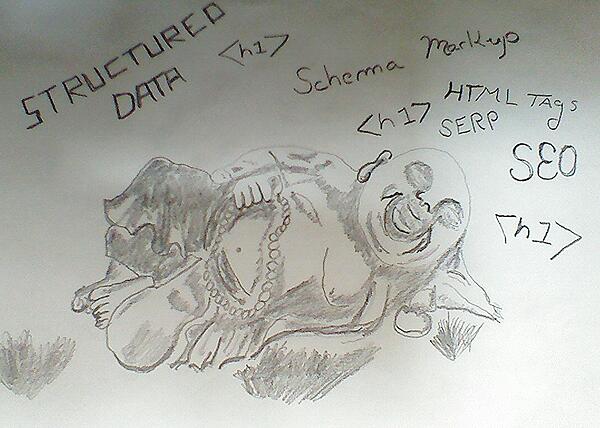
One of the latest evolutions in SEO is Schema Markup. This new form of optimization is one of the most powerful and least-utilized forms of SEO. Once you understand the concept and method, you can easily boost any website in the search engine results pages, aka the SERPs.
Search engines such as Google, Yahoo! and Bing use Schema Markup to improve the display of search results. The main reason is to make their search engine returns the most relevant, allowing people to quickly find meaningful web pages. Most websites are generated from what’s referred to as structured data. This structured data, which is often stored in databases and formatted into HTML, becomes very difficult for search engines to recover. Many applications, especially search engines, can benefit greatly from direct access to this structured data. It’s important to note that going forward, Schema Markup will enable new tools and applications that make use of structured data.
What is Schema Markup?
Schema Markup is simple code aka “semantic vocabulary,” that is put on a website to help the search engines return more informative results for users. The current form of this is called “Rich Snippets” and if a user understands them and how they work, they understand exactly what Schema Markup is about. Schema tells the search engines what data means, not just what it says. In addition, Schema is also a type of micro data that makes it easier for search engines to segment and interpret webpage information more effectively so it can serve even more relevant results to users based on their search queries.
How does it work?
Currently the content on any website gets indexed and returned in search results using typed “keyword phrase” matching. Through Schema Markup, some of the content gets indexed and returned in a different way. Schema Markup tells the search engine what content actually means.
For example the words “Bridgeview Marketing” appear on an indexed website page. The search engine sees this, and produces a Search Engine Return Page (SERP) entry with “Bridgeview Marketing.” If the right Schema Markup is placed around the words “Bridgeview Marketing,” we’ve just told search engines that “Bridgeview Marketing” is the authority of the content on that indexed website page, versus being just a couple of random words. The search engine then provides results that display deeper information for the user who was searching for “Bridgeview Marketing.”
For the more tech minded, Schema.org explains it this way:
Most webmasters are familiar with HTML tags on their pages. Usually, HTML tags tell the browser how to display the information included in the tag. For example, <h1>Avatar</h1> tells the browser to display the text string “Avatar” in a heading 1 format. However, the HTML tag doesn’t give any information about what that text string means — “Avatar” could refer to the hugely successful 3D movie, or it could refer to a type of profile picture—and this can make it more difficult for search engines to intelligently display relevant content to a user.
Why should a company care about Schema Markup?
It helps any website rank better for all types of content. There is data markup for, business, entertainment, software applications, medical, and high-tech. In fact there are hundreds of markup types. Websites that use Schema Markup will rank better in the SERPs than companies without markup.
In fact, one third of Google’s search results incorporate rich snippets, which includes schema markup. However, according to Searchmetrics, only 0.3 of all websites use schema markup.
In conclusion:
This is one of the many strategies Bridgeview Marketing uses when we SEO content on websites, articles, white papers, social media posts, etc. Schema Markup in our opinion will be the most important strategy related to indexing content for search in the future.
This is why our SEO strategies are so successful and enable our clients to place higher on the SERPs. As an example perform a search on our client General Linen’s services (Generallinen.com)
-
Search: Linen supply companies NH - Their ad is #1 position and they own 4 out of the Top 10 positions, Including the #1 and #2 spots.
-
Search: Commercial Linen Service NH - Their ad is in the #1 spot and they own 4 out of the Top 10 positions, the #1 and #2 spots above their primary competitor, Crown Uniform.
-
Search: Linen Services - Their ad is #1 position and the own the #1 spot above their competition, Crown Uniforms and Sterling Linen
-
Search: Restaurant Laundry Service - Their ad is #1 and they also have the #2 position about their competitor.
These are the results at the time of this blog post and within the Northeast region.
Additionally, our strategies are proven to create revenue for our clients by delivering extremely relevant actionable content to the searcher.
There is only so much information that we can put into a single blog post. If you’d like more information around Schema Markup and how it relates to SEO, please reach out to us and continue the conversation.
Because we do this work every day for our clients we can advise you on what would be right for your business. This can be on any subject, so just ask!
Look for our next post where we will cover the importance for advertisers to gather useful data on their competitors’ performance in the SERPs. We’ll also evaluate software products we use or recommend to make that job easier and more accurate.
